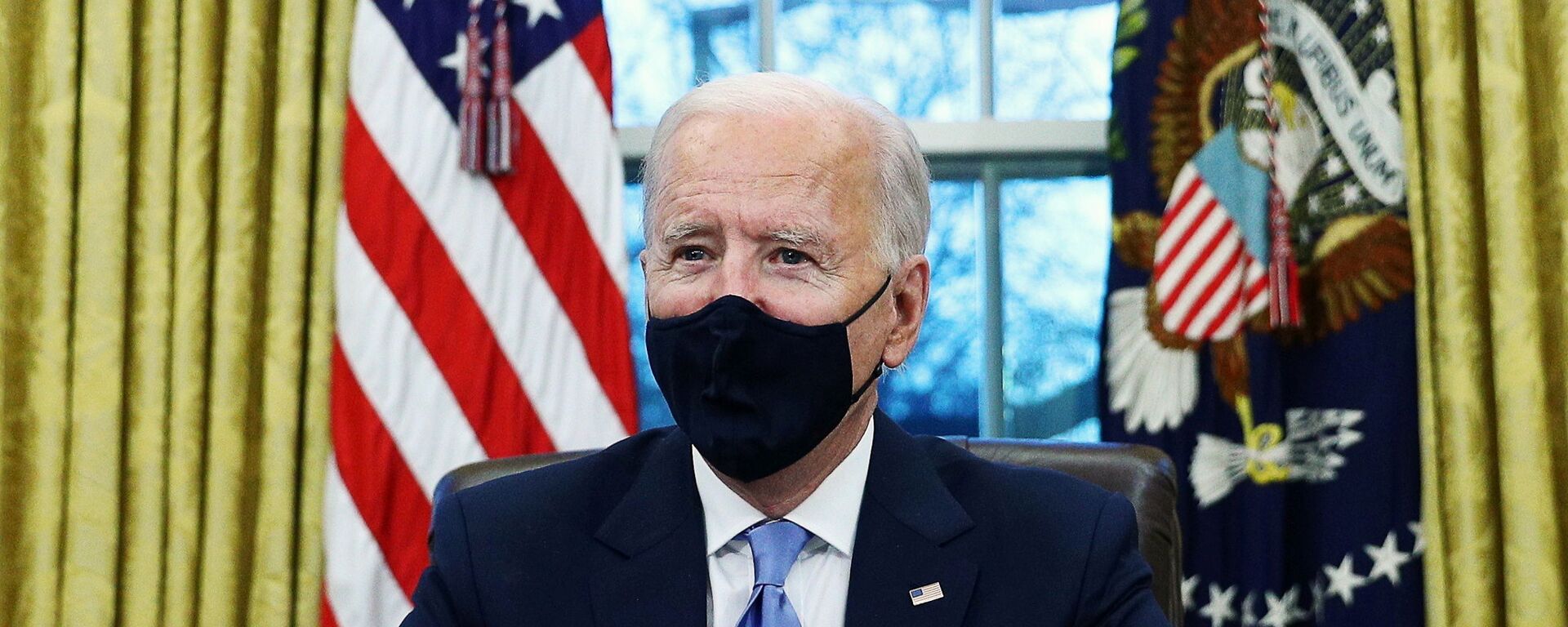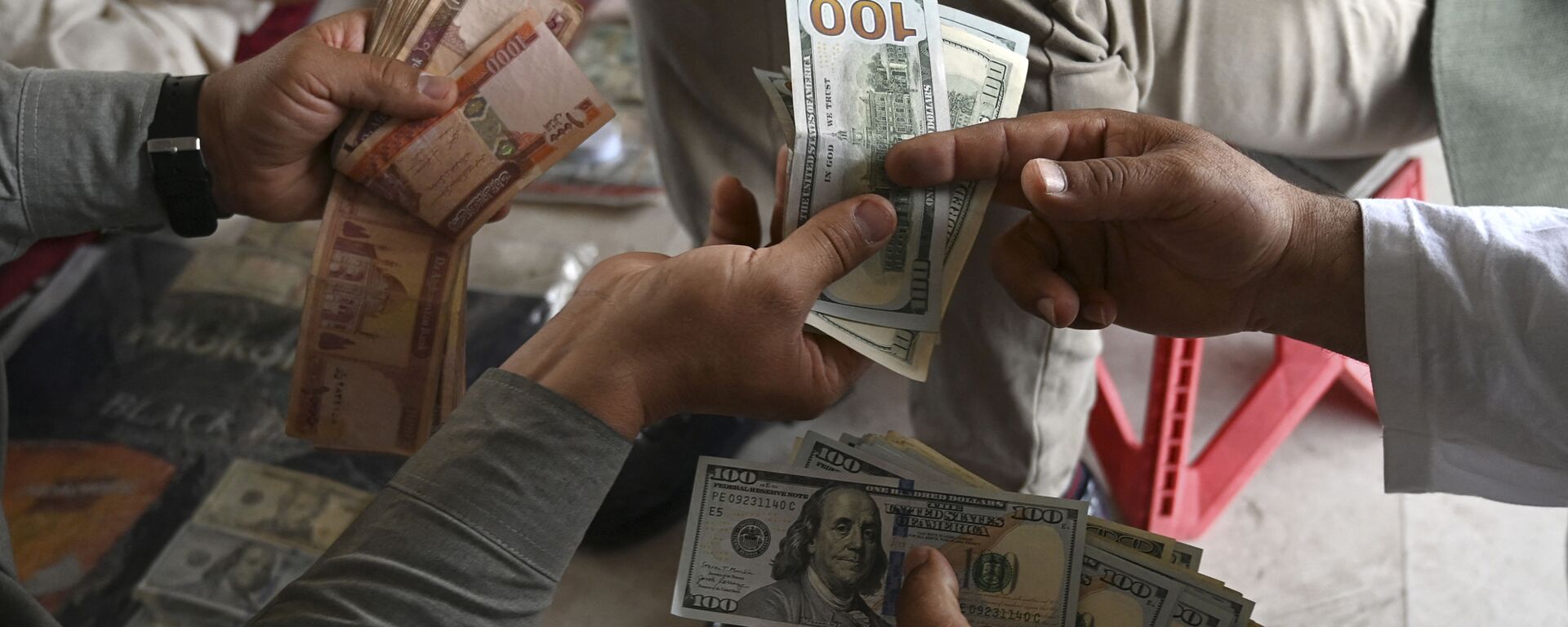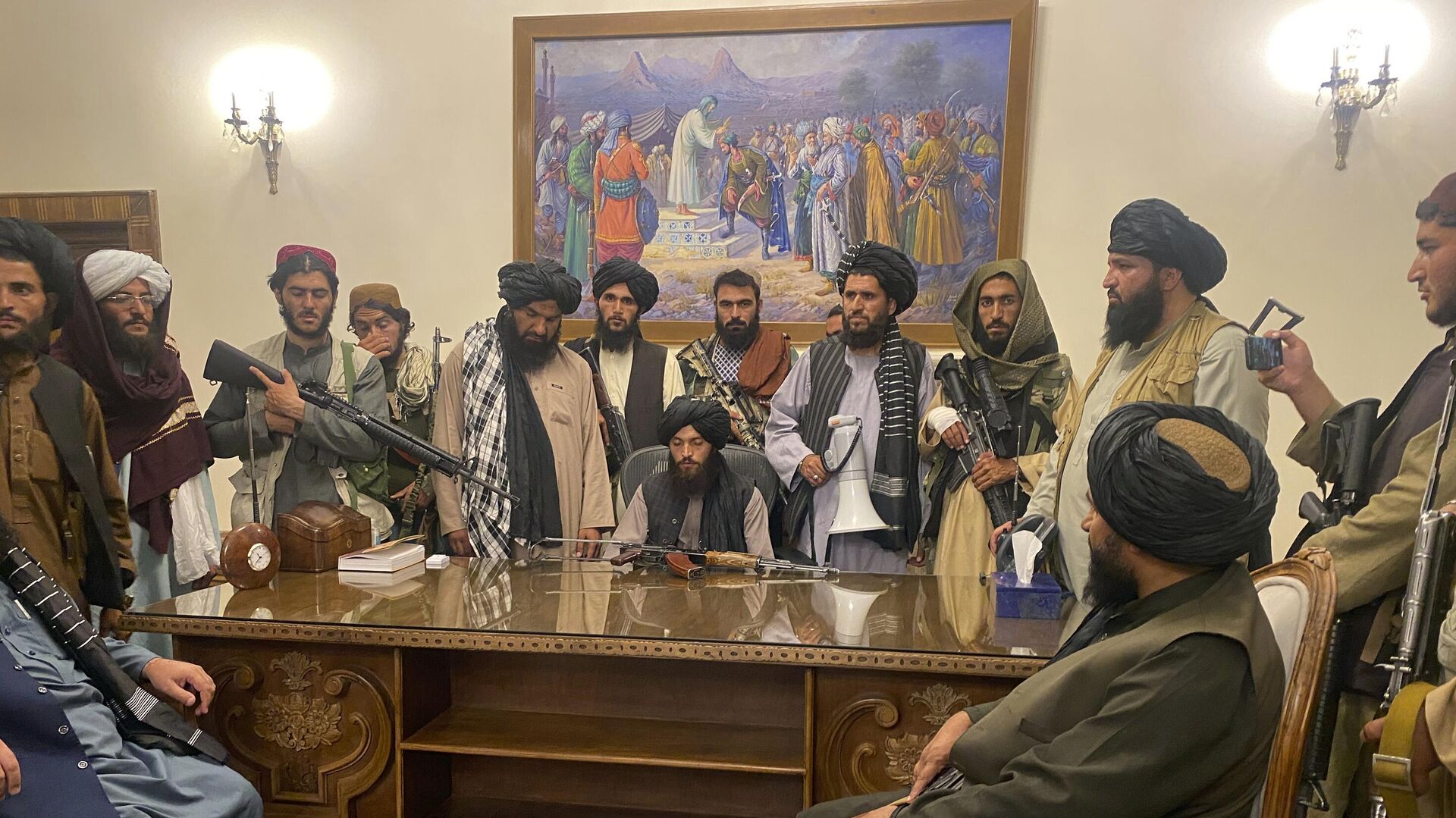https://sputnikglobe.com/20220325/china-russia-deepen-ties-with-taliban-as-global-order-is-re-built-says-analyst-1094179716.html
China, Russia Deepen Ties With Taliban as ‘Global Order Is Re-Built', Says Analyst
China, Russia Deepen Ties With Taliban as ‘Global Order Is Re-Built', Says Analyst
Sputnik International
Chinese Foreign Minister Wang Yi visited Kabul on Thursday and met with the Taliban’s leadership. On the same day, Russia's Special Representative to... 25.03.2022, Sputnik International
2022-03-25T13:51+0000
2022-03-25T13:51+0000
2022-03-25T13:51+0000
afghanistan
taliban
afghanistan
zamir kabulov
wang yi
china
russia
us
https://cdn1.img.sputnikglobe.com/img/07e6/03/19/1094187365_0:0:2941:1654_1920x0_80_0_0_cfb00d218f81ada8f291144a2cc3a845.jpg
Countries such as China and Russia are deepening their commercial ties with the Taliban* in spite of persisting reservations about the Islamist group’s policies harboured by the US and other western partners, according to Indian strategic affairs analyst and former Army officer Pravin Sawhney, talking to Sputnik.The US and its western allies have maintained that establishing normal diplomatic and trade relations with the Taliban hinge on the group's ability to fulfil its commitments, including forming an inclusive cabinet, respecting women and human rights. Russia, China and Pakistan have supported calls for greater engagement between the Taliban and the global community.Although both Russia and China are batting for deeper economic engagement with Kabul, both the governments have yet to recognise officially the group's claim to Afghanistan's leadership. The Taliban has yet to be recognised by any foreign government.Significantly, the Taliban's recent refusal to open schools for girls in spite of earlier pledges, was supported by Pakistan, whose Prime Minister Imran Khan defended "tribal customs" and said that the "idea of human rights and women’s rights is different in every society".The US and other western nations, meanwhile, warned that the decision would "harm" Afghanistan's reputation and economic progress.Sahwney argues that the “western idea of democracy and human rights” has been “completely rejected by Afghanistan as well as by both Russia and China among other countries in the region.Commenting on the ongoing international processes, Sawhney points out that the Russian military operation in Ukraine and subsequent western sanctions against Moscow have implications for the global order, including Afghanistan.The analyst further points out that extending the BRI, or China-Pakistan Economic Corridor (CPEC), north into Afghanistan would only reinforce the "vision" of a Beijing-led “Asia-Pacific architecture”.Backed by Beijing, the BRI, or One Belt One Road (OBOR) is a set of existing and proposed connectivity and infrastructure projects aimed at bringing together the economies of Asia, Africa, Europe and other regions. A study in 2019 claimed that BRI could boost the global economy by $7 trillion per year by 2040, with more than 56 countries set to benefit.The China-Pakistan Economic Corridor (CPEC) is a flagship project under BRI. The CPEC begins in China’s Xinjiang province and extends to the port of Gwadar on Pakistan’s Arabian Sea coast. Pakistan’s Khan has said that CPEC is crucial for his country's economic growth.China Praises Taliban’s ‘Visible Results’Chinese Foreign Minister Wang Yi held meetings with Deputy Prime Minister Mullah Abdul Ghani Baradar, Foreign Minister Amir Khan Muttaqi and Interior Minister Siraj Haqqani during his Thursday visit to Kabul. Wang is the most senior Chinese statesman to have visited Afghanistan since the Taliban stormed to power last August.Wang expressed hope that the Taliban will keep working towards an “inclusive” government and “opposed foreign forces imposing political pressure and economic sanctions on Afghanistan at will”.The Chinese Foreign Minister has also invited Muttaqi to the foreign ministers' meeting of Afghanistan's neighbouring countries, which Beijing is set host this month.Similar security assurances were given to Wang by Haqqani, who is one of the most influential figures in the Taliban government.In his meeting with Baradar, Wang said that he “welcomes” Afghanistan’s role in the China-Pakistan Economic Corridor (CPEC) and Beijing was willing to extend the connectivity project from Pakistan into Afghanistan.Taliban Says Russia ‘Satisfied’ With AchievementsAccording to the Taliban’s foreign office spokesman Abdul Qahar Balkhi, Russia's special envoy Kabulov discussed “political, economic, transit and regional relations” with the Taliban leadership.He said that Kabulov expressed Russia’s willingness to sign agreements with the Taliban in a number of spheres, including industry, agriculture and energy. The Russian special representative was accompanied by officials from the ministries of the interior, agriculture, defence and energy, according to Balkhi.Russia so far hasn't issued any statement on the visit.*Terrorist organisation outlawed in Russia and in other countries.
https://sputnikglobe.com/20220211/biden-signs-order-freezing-7bn-in-afghan-assets-1092943237.html
https://sputnikglobe.com/20220223/bidens-decision-on-35bln-afghan-funds-could-compound-economic-monetary-crisis-1093292557.html
afghanistan
china
Sputnik International
feedback@sputniknews.com
+74956456601
MIA „Rossiya Segodnya“
2022
News
en_EN
Sputnik International
feedback@sputniknews.com
+74956456601
MIA „Rossiya Segodnya“
Sputnik International
feedback@sputniknews.com
+74956456601
MIA „Rossiya Segodnya“
taliban, afghanistan, zamir kabulov, wang yi, china, us
taliban, afghanistan, zamir kabulov, wang yi, china, us
China, Russia Deepen Ties With Taliban as ‘Global Order Is Re-Built', Says Analyst
Chinese Foreign Minister Wang Yi visited Kabul on Thursday and met with the Taliban’s leadership. On the same day, Russia's Special Representative to Afghanistan, Zamir Kabulov, also held meetings with the Taliban leadership and also former Afghan President Hamid Karzai.
Countries such as China and Russia are deepening their commercial ties with the Taliban* in spite of persisting reservations about the Islamist group’s policies harboured by the US and other western partners, according to Indian strategic affairs analyst and former Army officer
Pravin Sawhney, talking to Sputnik.
“We now have a situation where two major powers are on the same side, and the western countries led by the US are a completely different lot,” he says.
The US and its western allies have maintained that establishing normal diplomatic and trade relations with the Taliban hinge on the group's ability to fulfil its commitments, including forming an inclusive cabinet, respecting women and human rights.
Russia, China and Pakistan have supported calls for greater engagement between the Taliban and the global community.
Although both Russia and China are batting for deeper economic engagement with Kabul, both the governments have yet to recognise officially the group's claim to Afghanistan's leadership. The Taliban has yet to be recognised by any foreign government.
Neither Russia nor China “want the Taliban to fail at any cost”, the expert says, reckoning that Pakistan will play a “crucial role” in guiding China’s and Russia’s policy towards the Taliban.
Significantly, the Taliban's recent refusal to open schools for girls in spite of earlier pledges, was supported by Pakistan, whose Prime Minister Imran Khan defended "tribal customs" and said that the "idea of human rights and women’s rights is different in every society".
During his meetings with Taliban leaders on Thursday, even Wang assured the Islamist group that Beijing won't interfere in the "internal matters" of Afghanistan, a major demand of the Taliban during the Doha Agreement. Wang further told Taliban officials that he respected the customs and religion of Afghanistan, contrasting completely with the hardline stance adopted by the US and its western allies.
The US and other western nations, meanwhile, warned that the decision would "harm" Afghanistan's reputation and economic progress.
Sahwney argues that the “western idea of democracy and human rights” has been “completely rejected by Afghanistan as well as by both Russia and China among other countries in the region.
“This is something that the US should have realised after trying to spread liberal democracy in Afghanistan and other countries such as Iraq in the past 20 years,” Sawhney highlights.

11 February 2022, 14:33 GMT
Commenting on the ongoing international processes, Sawhney points out that the Russian military operation in
Ukraine and subsequent western sanctions against Moscow have implications for the global order, including Afghanistan.
“The global order is being re-built. In that order, the Belt and Road Initiative (BRI) is critical for China,” Sawhney says.
The analyst further points out that extending the BRI, or China-Pakistan Economic Corridor (CPEC), north into Afghanistan would only reinforce the "vision" of a Beijing-led “Asia-Pacific architecture”.
“This vision is very different from US-led architectures such as the Quad, or other groupings meant to support Washington’s Indo-Pacific Strategy,” he states.
Backed by Beijing, the BRI, or One Belt One Road (OBOR) is a set of existing and proposed connectivity and infrastructure projects aimed at bringing together the economies of Asia, Africa, Europe and other regions. A study in 2019 claimed that BRI could boost the global economy by
$7 trillion per year by 2040, with more than 56 countries set to benefit.
The China-Pakistan Economic Corridor (CPEC) is a flagship project under BRI. The CPEC begins in China’s Xinjiang province and extends to the port of Gwadar on Pakistan’s Arabian Sea coast. Pakistan’s Khan has said that CPEC is crucial for his country's economic growth.
China Praises Taliban’s ‘Visible Results’
Chinese Foreign Minister Wang Yi held meetings with Deputy Prime Minister Mullah Abdul Ghani Baradar, Foreign Minister Amir Khan Muttaqi and Interior Minister Siraj Haqqani during his Thursday visit to Kabul. Wang is the most senior Chinese statesman to have visited Afghanistan since the Taliban stormed to power last August.
Wang “noticed that the Afghan interim government has actively responded to the concerns of the international community and achieved some visible results,” a release by the Chinese Foreign Ministry said after a meeting between Wang and Muttaqi.
Wang expressed hope that the Taliban will keep working towards an “inclusive” government and “opposed foreign forces imposing political pressure and
economic sanctions on Afghanistan at will”.

23 February 2022, 06:48 GMT
The Chinese Foreign Minister has also invited Muttaqi to the foreign ministers' meeting of Afghanistan's neighbouring countries, which Beijing is set host this month.
Importantly, the Chinese release quoted Muttaqi as assuring Wang that the Taliban won’t allow proscribed China-oriented terror group East Turkestan Islamic Movement (ETIM) to be based in Afghanistan.
Similar security assurances were given to Wang by Haqqani, who is one of the most influential figures in the Taliban government.
In his meeting with Baradar, Wang said that he “welcomes” Afghanistan’s role in the China-Pakistan Economic Corridor (CPEC) and Beijing was willing to extend the connectivity project from Pakistan into Afghanistan.
Taliban Says Russia ‘Satisfied’ With Achievements
“The head of the Russian delegation, Zamir Kabulov, said the sole purpose of his visit to Afghanistan was to strengthen ties between the two countries,” a release from Baradar’s office said.
According to the Taliban’s foreign office spokesman Abdul Qahar Balkhi, Russia's special envoy Kabulov discussed “political, economic, transit and regional relations” with the Taliban leadership.
“Kabulov called the IEA's (Islamic Emirate of Afghanistan, or the Taliban) policy balanced and in the interest of the region and world, expressing satisfaction with the new government's achievements,” Balkhi said.
He said that Kabulov expressed Russia’s willingness to sign agreements with the Taliban in a number of spheres, including industry, agriculture and energy.
The Russian special representative was accompanied by officials from the ministries of the interior, agriculture, defence and energy, according to Balkhi.
Russia so far hasn't issued any statement on the visit.
*Terrorist organisation outlawed in Russia and in other countries.




